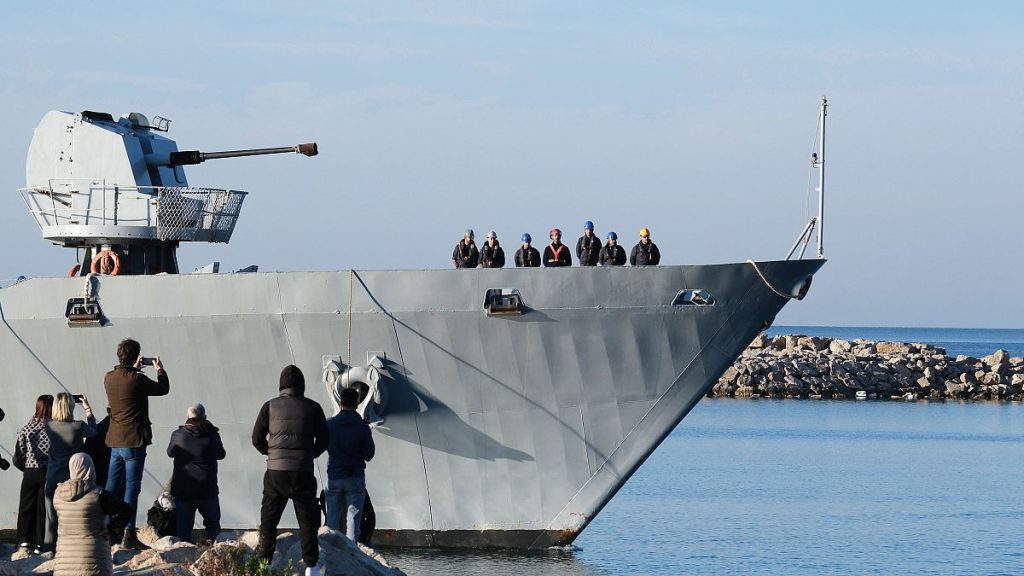The Italian navy recently transferred a group of migrants from Bangladesh and Egypt to Albania, where they were denied entry due to a failed vetting process. A court ruling in Rome determined that their countries of origin were not safe enough for repatriation. The decision shortens the list of countries considered “safe” by law, potentially impacting the ability of Italy to repatriate migrants quickly. This ruling has raised concerns about the effectiveness of the migration processing centers in Albania and the overall management of migration flows in the region.
Following the court ruling, a group of 12 migrants was returned to Italy after being deemed ineligible for repatriation to Bangladesh and Egypt. The Italian navy ship docked at the Albanian port of Shengjin to transfer the migrants, who will undergo asylum processing before being transferred to the repatriation center in Gjader. This marks only the second transfer of migrants since the migrant processing centers started operating in October. The decision to return these migrants highlights the challenges faced by countries when determining the safety and eligibility of migrants for repatriation.
Italian Premier Giorgia Meloni criticized the court ruling, stating that deeming countries like Bangladesh and Egypt as unsafe could potentially prevent the majority of migrants from being eligible for repatriation to Albania. This could impact the effectiveness of the fast-track procedure for repatriating migrants who do not qualify for asylum. The ruling raises questions about the criteria used to assess the safety of countries of origin and the implications for managing migrant flows in the region. It also highlights the need for a more comprehensive and coordinated approach to addressing migration challenges.
Despite the challenges faced in repatriating migrants to certain countries, the number of people reaching Italy along the central Mediterranean migration route has decreased by 60% in 2024 compared to the previous year. The Italian Interior Ministry reported that as of November 7th, 57,767 migrants had arrived by sea in 2024, primarily from countries like Bangladesh, Syria, Tunisia, and Egypt. The decline in migration flows may be attributed to various factors, including stricter border controls, improved cooperation with origin and transit countries, and changes in the political and social environment in the region.
The ongoing developments in the management of migration flows in the Mediterranean region highlight the complex challenges faced by countries like Italy in addressing migration issues. The court ruling in Rome regarding the safety of countries like Bangladesh and Egypt for repatriation has significant implications for the effectiveness of migration processing centers in Albania and the overall management of migration flows. It underscores the need for a more coordinated and comprehensive approach to handling migration challenges and ensuring the safety and well-being of migrants in the region.
In conclusion, the recent transfers of migrants from Bangladesh and Egypt to Albania and the subsequent court ruling in Italy have brought attention to the complexities and challenges of managing migration flows in the region. The decision to return migrants to Italy due to safety concerns in their countries of origin raises questions about the criteria used to assess the eligibility of migrants for repatriation. It also highlights the need for improved cooperation between countries and a more coordinated approach to addressing migration challenges. The decrease in migration flows to Italy in 2024 indicates some progress in managing migration, but ongoing efforts are needed to ensure the safety and well-being of migrants in the region.













